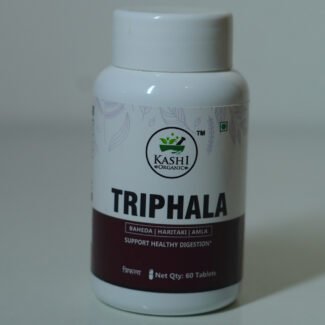Multivitamins are dietary supplements that contain a combination of vitamins, minerals, and other nutrients. They are designed to fill nutritional gaps and ensure that individuals receive the essential nutrients needed for overall health and well-being. Multivitamins come in various forms, including tablets, capsules, powders, and gummies.
Uses
- Nutritional Insurance: Multivitamins help fill potential gaps in the diet, ensuring that individuals get essential nutrients that might be missing from their regular food intake.
- Supports Overall Health: Provides a broad spectrum of vitamins and minerals that support various bodily functions, including immune health, bone health, and cardiovascular health.
- Boosts Immune System: Contains nutrients like Vitamin C, Vitamin D, and zinc that are known to support and enhance immune function.
- Improves Energy Levels: Vitamins such as B-complex vitamins play a key role in energy production and reducing fatigue.
- Supports Mental Health: Certain vitamins and minerals, including Vitamin B12 and folate, are important for mental health and cognitive function.
- Promotes Healthy Skin, Hair, and Nails: Vitamins such as Vitamin A, Vitamin E, and biotin contribute to healthy skin, hair, and nails.
- Maintains Bone Health: Vitamins D and K, along with minerals like calcium and magnesium, are important for maintaining strong bones and preventing osteoporosis.
- Supports Digestive Health: Multivitamins may include digestive enzymes or probiotics that aid in digestive health.
Common Ingredients
- Vitamin A: Supports vision, immune function, and skin health.
- Vitamin C: Boosts the immune system and acts as an antioxidant.
- Vitamin D: Essential for bone health and calcium absorption.
- Vitamin E: Provides antioxidant protection and supports skin health.
- Vitamin K: Important for blood clotting and bone health.
- B Vitamins(e.g., B1, B2, B6, B12, Folate): Support energy production, brain function, and red blood cell formation.
- Calcium: Crucial for bone health and muscle function.
- Magnesium: Supports muscle and nerve function, and bone health.
- Zinc: Supports immune function, wound healing, and DNA synthesis.
- Iron: Important for oxygen transport in the blood and energy production.
How to Use
- Dosage: Follow the dosage instructions on the product label or as recommended by a healthcare provider. Typically, one tablet or capsule per day is common, but the dosage may vary based on individual needs and the specific formulation.
- Timing: Multivitamins can be taken with or without food. Some people prefer taking them with meals to enhance absorption and reduce the risk of stomach upset.
- Forms: Available in various forms such as tablets, capsules, gummies, powders, and liquids. Choose the form that best suits your preferences and needs.
Precautions
- Consultation: Consult with a healthcare provider before starting multivitamins, especially if you have underlying health conditions or are taking other medications.
- Quality: Choose high-quality multivitamins from reputable brands to ensure safety and effectiveness. Look for certifications such as GMP (Good Manufacturing Practices) or third-party testing.
- Avoid Overuse: Be cautious not to exceed the recommended dosage, as excessive intake of certain vitamins and minerals can lead to toxicity or adverse effects.
- Interactions: Multivitamins may interact with certain medications or medical conditions. Discuss with a healthcare provider if you are taking medications or have health concerns.
Conclusion
Multivitamins serve as a convenient way to ensure you are getting essential nutrients needed for optimal health. They support various aspects of health, including immune function, energy levels, and overall well-being. When used appropriately and as part of a balanced diet, multivitamins can be a valuable tool for maintaining good health and preventing nutritional deficiencies.































Ravindar –
I saw differences in my energy level and overall well-being with Kashi Vitamin tablets which now, I am taking on daily basis. Overall the product is good !